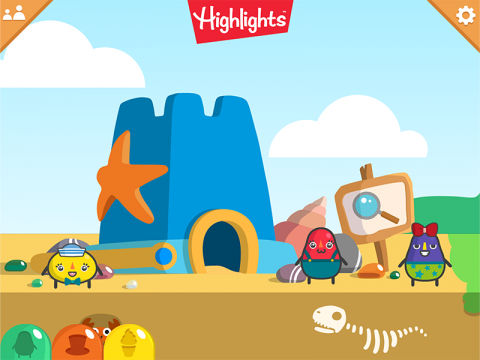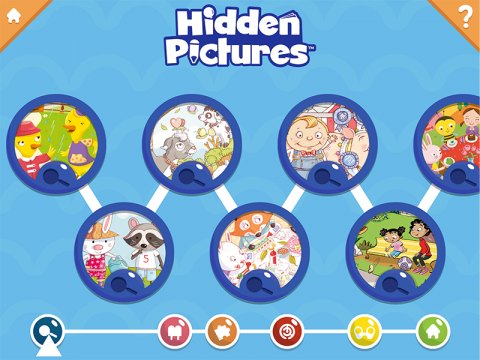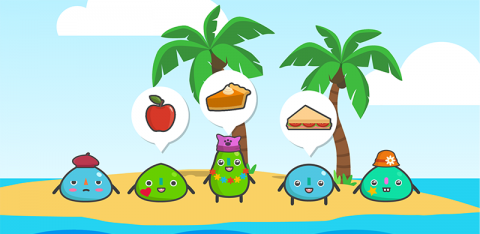On Your Marks. Get Set. Let’s Puzzle Play
Peter played with puzzling puzzles and put the pieces of the puzzle in proper order! Now that was quite a puzzling tongue twister, wasn’t it? Puzzles have always been a classic free-play activity for kids. Puzzles come in a variety of types, patterns, and shapes, with different levels of difficulties.
Puzzles keep the children engaged in some sort of ‘mental workout’ which wouldn’t have been possible otherwise. When children are presented with a challenging puzzle, their left brain and right brain are at work together. The left brain prompts logic and the right brain demonstrates creativity, which are essential skills required while solving a puzzle.
Here are a few things that children learn through puzzle play:
Spatial skills: When kids solve a puzzle, they are told to look at each piece carefully to be able to place them correctly, to ultimately form ‘the bigger picture’. Adults use words like turn, flip, and rotate to indicate positioning of the jumbled pieces. Children start using their imaginative skills to figure what the ‘picture’ would look like, if a particular piece was joint to the other. Spatial awareness develops as the child is now becomes aware of how different objects relate to each other and how moving one object affects the other.
Problem-solving skills: Every piece of the puzzle is important. Piece by piece forms a complete picture. The first step to solving a puzzle is to unjumble the pieces and sort them in order. This gives children the chance to learn problem solving. They learn that it is more effective to break down the complexity of the task and deal with it in an organized manner.
Improves memory: Puzzles are great brain boosting activities. The mind is alert and most active in trying to make connections, remembering patters, and matching colors. Attempting to figure-out the puzzle in the first attempt might take a longer time. However, as the child tries over and over again, he gains confidence. At later stages, solving the same puzzle may seem like a cakewalk.
Develops persistence: Cracking the puzzle is like a eureka moment! The joy and confidence of the preschooler is unmatched. However, the process is quite frustrating at times. Children encounter many hurdles and go through an emotional roller coaster in an attempt to solving the puzzle. In the process, children learn to deal with their emotions and be persistent until they get it right.
Highlights Presents Hidden Pictures Puzzle Town App (3+ years)

To give puzzle play a new dimension and make screen time FUN for kids, Highlights introduced the ‘Hidden Pictures Puzzle Town App’ for children. The app soon become a favorite amongst the early learners and went-on to win a Platinum Award for the Best Mobile Game of 2017.
The app creates excitement amongst puzzlers and rewards them on every milestone achieved. It’s invigorating for your little ones to unlock an animated character and collect points on their way to manifest a personalized ‘puzzle town’.

Hidden Pictures Puzzle Town consists of the following:
- 50 puzzles
- Weekly 5 new puzzles
- 5 different kinds of puzzles, including Highlights’ famous Hidden Pictures scenes
- Adorable characters and accessories to enhance play and personalization
- Additional bonus mini games that help earn more collectibles

Highlights’ puzzle gameplay aims to transform your children into the ‘best versions of themselves’.
- Hidden pictures within the puzzle promote vocabulary building
- Multiple attempts encourage letter recognition and critical thinking
- Finding their way through the ‘mazes’ help strengthen problem-solving and fine motor skills
- Matching and pairing activities build pre-math skills through visual memory
- Identifying an object within the puzzled picture, develops cognitive skills and improves memory
- Intensity of puzzle increases through adaptive learning technology, as the child becomes more confident
From emotional skills, to cognitive development, and self-esteem, puzzles seem to have obvious benefits on learners. Solving puzzles in the least possible time encourages healthy competition amongst children. Continuous improvement happens when children attempt and re-attempt the same puzzle multiple times.






Recent Comments